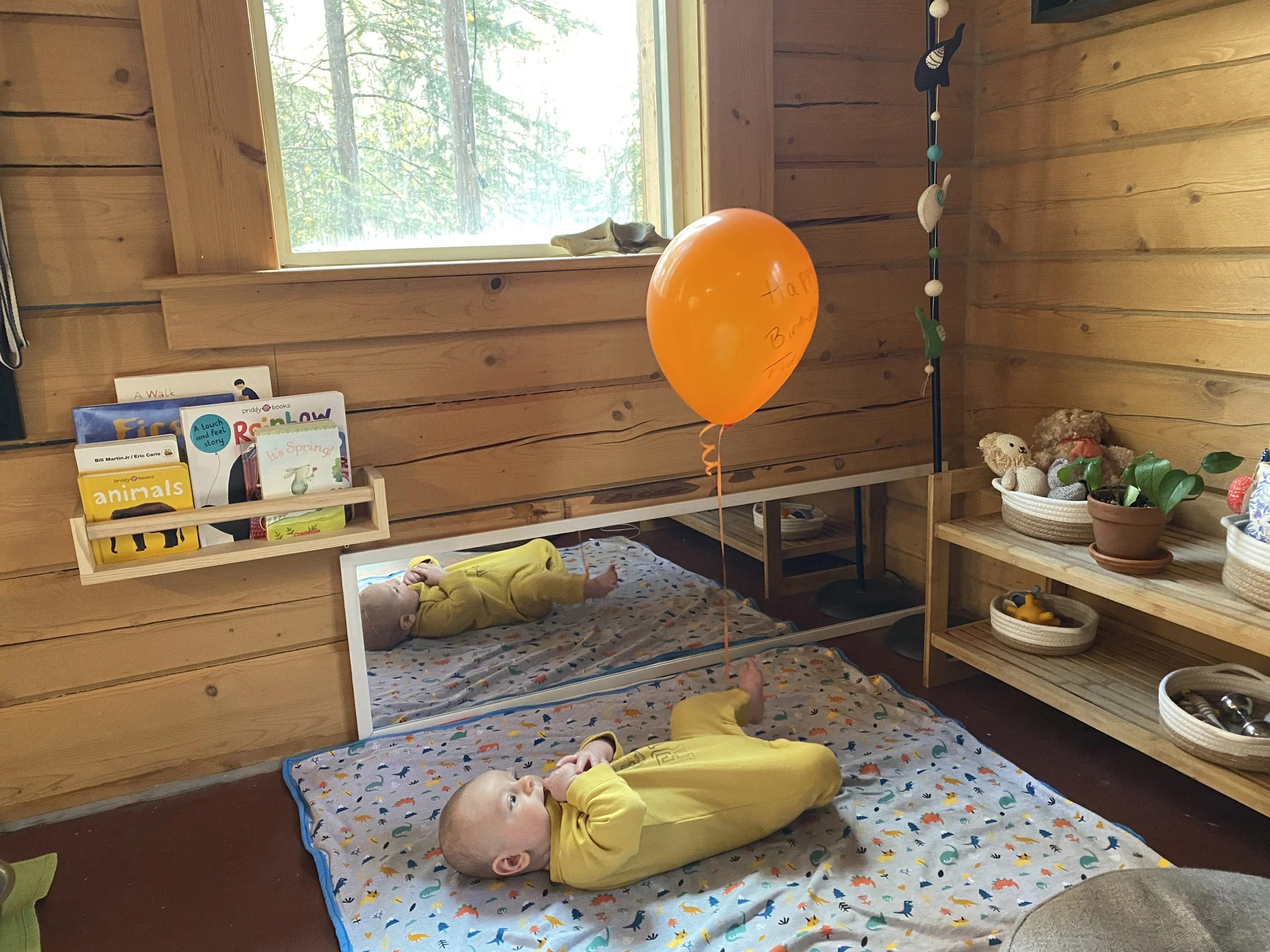Four Month Sleep “Progression”
We all have heard the phrase “Four Month Sleep Regression” but I would like to offer a change - “Four Month Sleep Progression”. This is a movement forward, not backwards. I would also like to point out it can happen anywhere between 3-5 months so don’t set a calendar reminder at 4 months. There are a lot of anxiety inducing articles out there that cause parents to fear these little sleep hiccups throughout the first few years. Sure, when sleep is derailed it can feel overwhelming and scary but it doesn’t have to mean total chaos. There is a tremendous amount of development happening in the first few years of life - gross motor skills, fine motor skills, cognitive development, social/emotional changes, and excitement from these little bodies who can suddenly do so much more than they once could. It is all bound to affect sleep.
This famous “bulb” chart from Maria Montessori shows just how much development and formation of the individual occurs before the age of 6 years old.
All of these changes are simply that - changes in your child’s development that require a new approach, a new routine, and a new mindset. Change feels hard to everyone, adults and children alike, but it is a sign your child is growing and developing. The first six years see some of the most rapid and intense changes in development but is a positive thing!
Let’s take a look at the “Four Month Sleep Progression” - WHAT IS IT?
The fourth trimester has ended, your newborn is now able to hold up their head and shoulders more confidently. Their vision has developed to be able to track items in their environment and view things at slightly greater distances. Their cognitive awareness of their surroundings has grown and they are alert for longer periods of time. Their sleep patterns are also changing. Slowly they have begun to develop a circadian rhythm to match that of older children and adults, nights and days may not feel as all over the place, and you may observe less periods of active sleep (sleep that includes lots of movement and sounds).
This all indicates that the child is, in fact, ready for more!
More time awake. More practice around building sleep skills. More calories perhaps. More diverse stimulation. More intentional interactions and efforts made communicating.
Children aged 3-5 months needs roughly 15-16 hours of sleep where before they may have needed anywhere from 16-20 hours total. Their needs are changing and sleep can feel very disrupted. You may notice more resistance to being put down, shorter naps, and more frequent overnight wake ups - to name a few.
So WHAT TO DO about this common “Sleep Progression”
First, don’t panic and remember your child can begin to show signs of being “ready for more” anywhere between 3-5 months. It’s best to work on creating a consistent routine around sleep at this age. Focusing on bedtime first and then applying that approach to nap time. Typical wake window lengths for this age vary from 1.5/2 hours around that 3 month old mark to 2/2.5 hours closer to that 5 month old mark. Finding a good length of time your baby can be awake without becoming overtired is key to establishing healthy sleep habits during the day. Making sure you are getting full feeds is also very important to setting your child up for success overnight. I am a snacker myself and some babies are too - but trying to establish some solid, full feeds during the day can help your baby store up calories so they are not searching for the majority of them at night (*Night feeds are still very common and to be expected at this age though). Also creating some spaces within your home so your infant can explore and experiment with their newfound mobility and stimulate their growing cognitive awareness is a great way to tire them out during the day.
Meet Marly
A Montessori trained educator, sleep coach, and toilet learning specialist who has supported families for over a decade. Check out more on her website and sign up for her newsletter to receive your FREE Montessori guide to the first 12 months!


